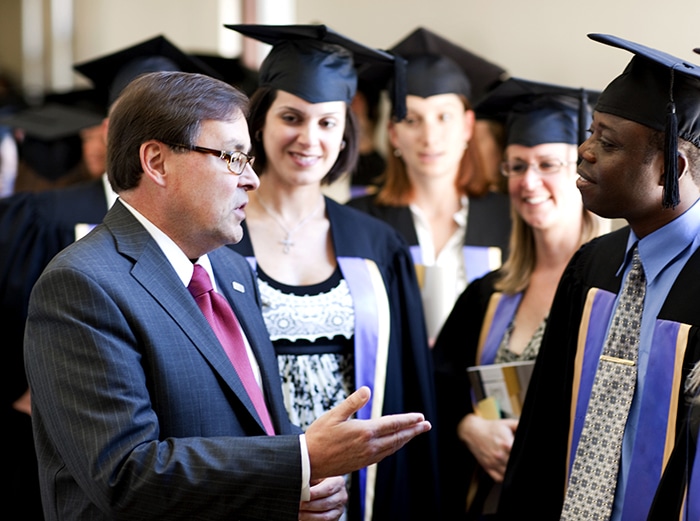The Head of the Department of Linguistics and Translation at the University of Montreal, Dominique Bohbot, discusses professional translation.
This week we interview Dominique Bohbot, Head of Professional Training at the Department of Linguistics and Translation at the University of Montreal. She spoke with us at length about her craft.
1. Dominique, could you tell us a bit about your career, and in particular your training prior to your appointment as Head of Professional Training at the Department of Linguistics and Translation?
I began my career at the University of Grenoble, where I earned my Bachelor of Applied Science and Technology with a double major in Applied Foreign Languages and Economics. After entering the workforce I continued my training both in the field of linguistics as well as in management and leadership. For several years I headed up the linguistic department at a large financial consortium with 20 branches, which I managed to turn into the epicentre for financial translations in Canada. Thanks to this accomplishment, I was a finalist at the Mérites du français 2014, an award granted by the Quebec Office of the French Language.
My goals are rooted in excellence in professional practice. I am a certified trainer, an official translator and authorised editor, and regularly participate in various forums in Montreal and Toronto.
I’m very interested in associational activities within the framework of building and developing networks. I contribute with the experience I have acquired at the Association of Linguistic Services Managers, of which I was president for three terms and remain an honorary member.
Today, my main role is that of Head of Professional Training at the Department of Linguistics and Translation at the University of Montreal.
2. What does your job consist of? Are you still teaching? If so, what subjects do you teach?
Professional training at the University of Montreal is a vital structure that allows students to combine academic strategies with the realities of the market. As such, I manage the internship programs for translation and terminology, and am in constant contact with companies, translation agencies, and linguistic services from organisations large and small. While I don’t teach, I recently created a program of activities with external speakers on specific topics to enable our students to build relationships with professionals in the business and understand the challenges they face.
3. Could you briefly explain what the training provided by the Department of Linguistics and Translation entails?
Linguistics studies the functioning of languages and linguistic processes. A variety of fields of study converge on it. Together with other disciplines, such as computer science, psychology, literature and philosophy, linguistics allows students to acquire specialised knowledge highly sought after in the market. Currently, the highly strategic information processing market also presents linguists with new opportunities.
Professional translation consists of reproducing in a particular language a text written in another language and conveying its message as faithfully as possible. A translator is called on to translate from their second, or perhaps third language, into their mother tongue. A translator is curious by nature, has a broad cultural knowledge, excellent cognitive flexibility, a deep understanding of the languages which he or she works with, and clear and precise diction. Translation presents a number of highly current challenges arising from globalisation and new technological advances.
4. How many students does the Department of Linguistics and Translation admit each year? Do you accept foreign students?
At the moment we have 500 students at all levels: bachelors, DHSS (Diploma of Higher Specialised Studies), professional diplomas, research diplomas, and doctorate programs. We also accept foreign students.
5. What are students looking to get out of this training? What opportunities does it open up for them in the job market?
The goal of our training in translation is to provide students with a solid preparation that will enable them to exercise their profession as an English to French translator, as well as initiate them to other types of specialised translation through a broad range of electives that focus on particular segments of the translation market: legal, scientific, commercial, medical, pharmacological, IT, literature, etc. Our training also includes research.
6. In your opinion, in which sector—banking, politics, non-profit, etc.—is translation indispensible in this day and age?
The explosion in communications over the past few decades brought on by the advent of the Internet has greatly increased the quantity of content available in multiple source languages. While language transfer is the channel par excellence for intercultural communications and international relations, it is also so in the world of business and trade, and, more broadly, plays a role in global economic growth.
7. How do you see the translation industry fifty years from now? Will robots be translating our books and written works?!
Automation is permeating all professions and fields, not only translation. We must be extremely careful with the use of automated outputs. It’s important to make a clear distinction between automated translation (output of words and segments often obtained using free software), and linguistics technologies (tools and software applications designed by and for professional translators). There’s no doubt that these sophisticated technologies—co-created by linguists and computer scientists, which automate the translation of certain content previously approved by translators and editors—represent the future, so long as they continue to be wielded by professionals in the field of linguistics.
Thank you, Dominique, for your valuable information on translation!
Discover our translation company.



